
‘Mutare City committed to see through Sakubva Stadium renovations’
January 24, 2019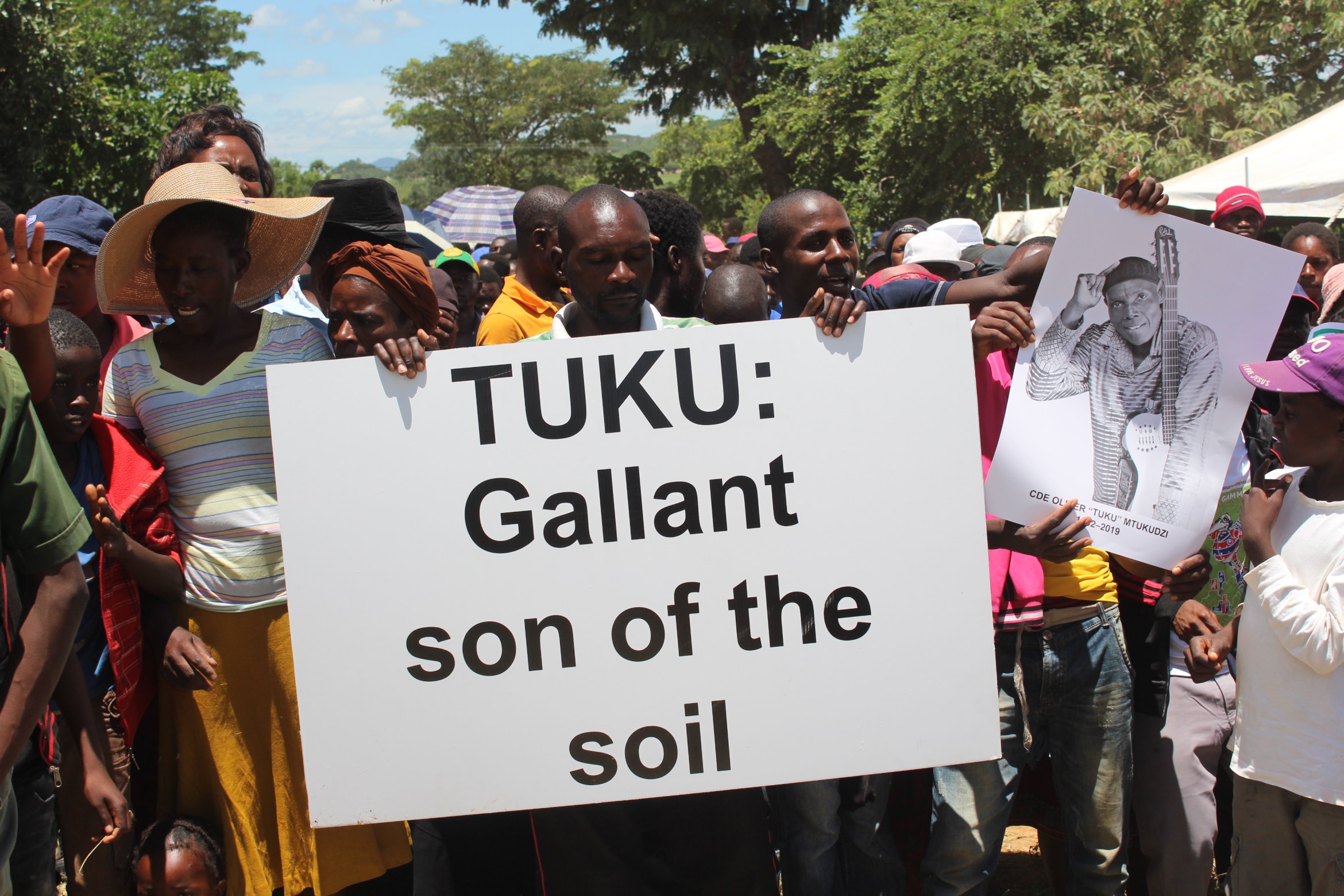
Afterthought: The real life lessons from Mtukudzi’s death
February 1, 2019Remembering Samanyanga the last of Zimbabwe’s musical greats
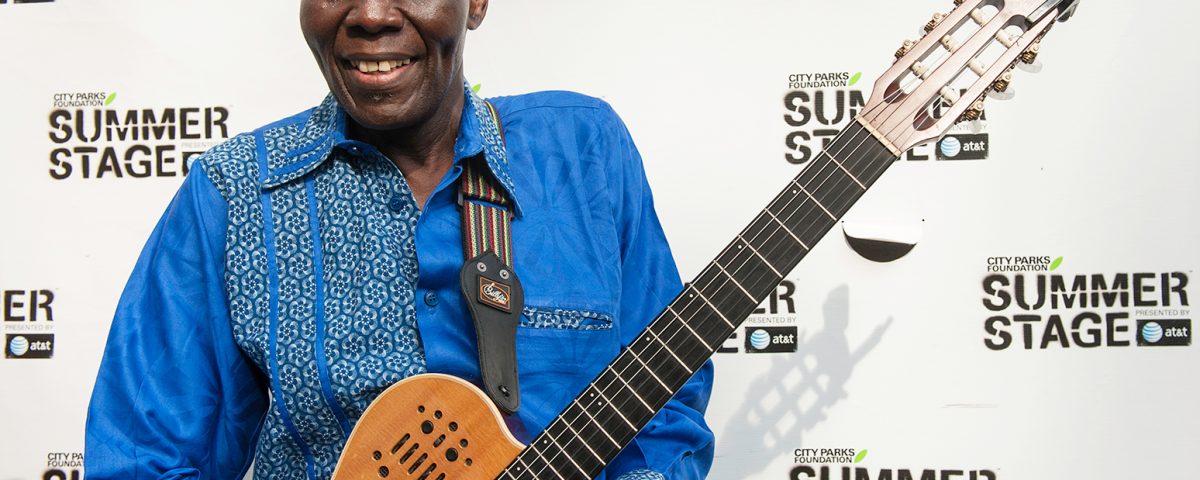
The late super star Oliver 'Tuku' Mtukudzi who was yesterday (Thursday) declared a national hero.
…Reliving a memorable interview with Tuku
Ngoni Dapira
“I had many downs, actually more downs than ups on my musical journey to stardom, but as I look back now I realize every experience was actually the source of my inspiration which made me work harder waiting for brighter days.”
THAT excerpt from an interview back in 2008 with the late legendary Zimbabwean music icon Dr Oliver ‘Tuku’ Mtukudzi who passed away on Wednesday after battling a long illness from diabetes speaks volumes about his rise to stardom from the ashes.
The multi-award winning artiste who was yesterday (Thursday) declared a national hero, becoming the first musician to be conferred this honour, died at the age of 66 with 67 albums to his name in a musical career that spanned over 43-years from around 1975. The tall, slim, multi-talented singer, song writer, producer, actor, instrumentalist and entrepreneur proved that he was indeed the darling of Zimbabwe’s music industry and Africa at large as social media platforms as well as conventional local and international news broadcasters were all awash with condolence messages to break the sad news just shortly after his death. The Black Spirits leader who had a distinctive husky voice to-date remains one of the outstanding Zimbabwean musician whose music has international appeal.
The Eastern Times decided to go back down memory lane reminiscing some excerpts from interviews with the soft spoken legend, whom this reporter had the privilege of having a One on One interview back in 2008, an article which was published in the Weekender of the Manica Post after his first show at Chapter One Leisure Centre, which had just been opened in Mutare.
It’s always been a ancient argument, whether heroes are born or made but the former has proven to be more true and the life of Tuku as he was fondly called by his fans, proves this. To sum it up the famous English writer William Shakespeare wrote about greatness in one of his books, Twelfth Night, when he said, ‘Be not afraid of greatness. Some are born great, some achieve greatness, and others have greatness thrust upon them.’ What is most touching about Tuku’s life story was that he had to achieve his greatness and carve his own destiny. Before 1977, if you asked anyone randomly who Oliver Mtukudzi was, very few woud know as he was just another ordinary youngster from Highfield. In the interview in 2008, Tuku said from onset he was ambitious about his music career but he never thought he would rise to the level of becoming an epitome of Zimbabwean music and an international music icon. He said he grew up is the high density suburb of Highfield in Harare and just like every youth he had ambitions to become successful but never imagined ‘how much’, and as he looked at himself in 2008 then, he said it was surreal for him to be where he was in his life, but thanked God for all his achievements.
In his own words Tuku said, “Music is all about giving life and hope to the people regardless of race, religion or political suasion. When I started music in my early 20s I just aspired to follow my passion. In all honesty I had faith in myself but never imagined I would be this famous. But I’m humbled by all this success which is why I want to mentor youths, especially those in our local music industry,” said Tuku.
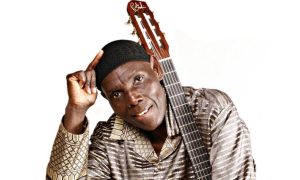
Oliver Mtukudzi
Of which indeed, those did not turn out to be just rhetoric words as his career from 2008 to his final breath, Tuku mentored many young artistes including his late son Samson. He also did many collaborations with young artistes from various genres including gospel, to mention the likes of Tocky Vibes, Munya Mataruse, Ex Q, Winky D, Sulumani Chimbetu, Mathias Mhere, Fungisai Zvakavapano to mention just a few.
Going back to the interview in 2008, I remember I was a novice back then, still on attachment and it was a great privilege to have been tasked to go and interview the music icon. I had booked for an appointment with him during his show and he told me to meet him in the morning at Holiday Inn Mutare, after his breakfast at 8am. I was very punctual and indeed he was ready for me by 8am. As he left the dining room with his wife after finishing breakfast, we sat in the lobby close to the dining room of the hotel and we greeted each other traditionally calling him by his totem saManyanga, before he gave me the floor to ask any questions. I composed myself but inside, honestly, I was star struck and could not believe I was having an interview the legend. He was however so friendly for a prominent man of his stature which was another virtue he had. I started with the general questions, discussing his latest 56th album, back then which was ‘Dairai ‘(Believe), which was also his middle name. He was also free to discuss even sensitive questions about his health which had started being topical back then in most tabloids. At 46 then, Tuku’s slightly frail look raised many questions about his health.
He humorously explained how there had always been talk of his death over the years. I cautiously, asked about rumours of his weight loss being linked to HIV which he scoffed off, citing that it was old age.
“I am growing old, but otherwise everything else is in place. Like everyone else I get sick with minor things like flu or a headache…I already did songs like Todii, which talk about HIV but that does not mean I am infected, it’s just a reflection of life and what is happening around me present day,” he said.
Mtukudzi said like most parents back then, born in a family of six siblings his parents preferred him to pursue a professional career in medicine or law, which is still the school of thought with many parents even in the 21st century, as music was not considered a career, but a hobby.
After high school Mtukudzi worked as a salesman in a stationery shop. He said he worked there for eight months just to raise money to buy a guitar and he left work to pursue his dream.
He formed a group called Acid Band with another Zimbabwean legend, Thomas Mapfumo, but the group latter disband and Tuku changed it to the Black Spirits. His music was mostly from inspiration of everyday events as he cited songs like ‘Ghetto Boy’ which he sang about his love for the ghetto where he came from or ‘Svosvi yangu’ which became a hit song but was a romantic song he composed for his wife Daisy after he had just married her.
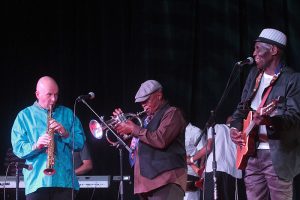
L-R: Steve Dyer, the late Hugh Masekela and the late Oliver Mtukudzi performing at a show at the HICC in Harare.
Tuku’s illustrious music career saw him perform a lot beyond the borders, in Africa and abroad. Regionally, especially in South Africa he became a frequenter and top biller at many international shows and festivals. He performed with South African greats, the likes of Johnny Clegg, the late Hugh Masekela, Ladysmith Black Mambazo, Judith Sephuma, Ringo Madlingozi, Ray Phiri, Steve Dyer, Yvonne Chaka Chaka to mention just a few.
Tuku often said his lifetime pride was launching Tuku Music in 1999 which brought him commercial success and broadened his audience beyond the borders. In 2004 he built his state-of-the-art studio Pakare Paye to Norton outside Harare.
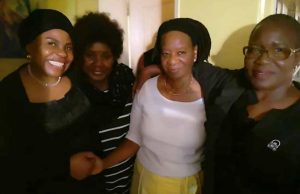
The Minister of Information, Publicity and Broadcasting Services Monica Mutsvangwa (extreme left) consoling Daisy Mtukudzi (White blouse) the wife of the late Oliver, with other mourners at the Mtukudzi family homestead in Norton on Wednesday.
From Wednesday up-to-date the social media is flooded with his condolence messages. His greatness is exuded by the sudden current shift from political discourse which was the main topical issue by Zimbabweans since the return from an internet blackout last week. From his fans, local artistes, business-people, politicians, diplomats, Presidents and former Presidents, all passed condolence messages celebrating Tuku’s musical career of 44-years.
Mtukudzi is survived by his wife Daisy and two daughters, Samantha (A daughter with Daisy who is married to former national senior team footballer Tinashe Nengomashe) and Selmor (From his first marriage who is married to the Zimbabwean music legend Zaxie Manatsa’s son, Tendai) and grandchildren. His only son with Daisy, Samson, died in a car accident in March 2010.



2 Comments
Great read
Thank you Farai.